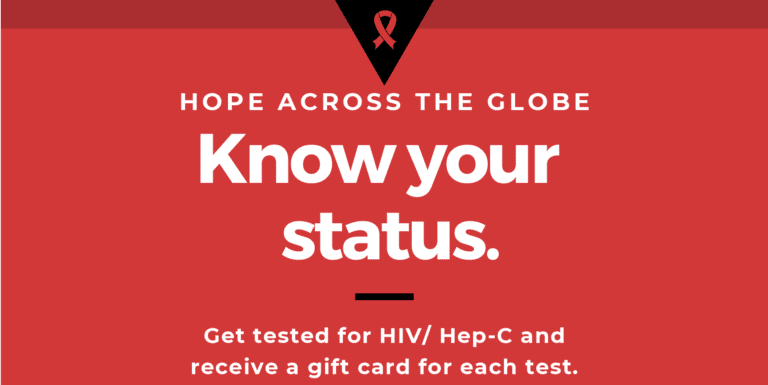What Does Genital Herpes Look Like?
Sexual health awareness is a cornerstone of individual well-being, and understanding the visual aspects of sexually transmitted diseases (STDs) is crucial for early detection and effective management. Genital herpes, caused by the herpes simplex virus (HSV), is a prevalent viral infection with distinct visual characteristics. This guide aims to delve deeper into what does genital herpes look like and highlight the pivotal role of STD testing in Jacksonville. As an advocate for global health awareness, Hope Across The Globe is committed to providing insights into prevalent health concerns, fostering a world where sexual health is prioritized and destigmatized.
The Intricacies of Genital Herpes
Genital herpes, caused by either the herpes simplex virus type 1 (HSV-1) or type 2 (HSV-2), manifests in the genital and anal regions. While HSV-1 is traditionally linked to oral herpes, HSV-2 is the predominant cause of genital herpes. Both variants can, however, lead to what does genital herpes look like through various modes of transmission, emphasizing the need to understand the physical attributes associated with this infection.
Genital herpes infections often begin with small, painful sores or blisters. These lesions can extend beyond the genital area to regions such as the buttocks, thighs, and lower back. The initial stages involve redness and inflammation, progressing to the formation of fluid-filled blisters. The first outbreak is typically the most severe, characterized by intense symptoms. Subsequent occurrences tend to be milder, but the potential for transmission remains.
Understanding the intricacies of the virus’s behavior is essential in comprehending what does genital herpes look like and the progression of genital herpes, highlighting the urgency of STD testing in Jacksonville for accurate diagnosis and timely medical intervention.
What Does Genital Herpes Look Like
Visualizing genital herpes involves acknowledging the dynamic nature of its presentation. The appearance of small, painful sores or blisters is a hallmark of the infection. These blisters can vary in size and may cluster together, forming larger lesions. The surrounding skin often exhibits redness and inflammation, accentuating the discomfort experienced by individuals during an outbreak.
As the infection progresses, the fluid-filled blisters may rupture, leading to the formation of painful ulcers. These ulcers can be particularly uncomfortable and may cause additional irritation during activities such as urination. Over time, the ulcers scab over and eventually heal. It’s important to note that the severity and duration of symptoms can vary from person to person, with some individuals experiencing multiple outbreaks in a year while others may have infrequent or no visible symptoms.
Despite the distinctive visual characteristics associated with genital herpes, it’s crucial to highlight that a significant proportion of individuals infected with HSV-2 may not exhibit visible symptoms. These asymptomatic carriers can unknowingly transmit the virus to sexual partners, underscoring the importance of what herpes looks like and STD testing in Jacksonville to identify and manage such cases.
The Imperative of STD Testing
At Hope Across The Globe, we recognize the pivotal role of routine STD testing, particularly in regions like Jacksonville. The multifaceted benefits of regular testing extend beyond individual health, encompassing community well-being and global public health initiatives.
1. Empowering Early Detection for Effective Treatment
Routine STD testing serves as a powerful tool for early detection, providing individuals with the opportunity for prompt medical attention. In the context of genital herpes, early treatment can effectively manage symptoms, mitigate the severity of outbreaks, and reduce the risk of transmission to sexual partners. This proactive approach contributes significantly to individual well-being and the prevention of secondary complications.
2. Curbing Transmission Risks through Comprehensive Awareness
Understanding what does genital herpes look like is paramount to mitigating transmission risks. Asymptomatic carriers, individuals not displaying visible symptoms, can still transmit the virus to others. Routine STD testing becomes a cornerstone in identifying and managing such cases, thereby reducing the risk of spreading the infection within communities. By promoting comprehensive awareness, we aim to empower individuals to take responsibility for their sexual health and contribute to the collective well-being of their communities.
3. Championing an Informed Approach to Sexual Health
Routine STD testing plays a crucial role in confronting and dispelling stigmas associated with sexually transmitted infections. By encouraging individuals to prioritize their sexual health and embrace regular testing, we aim to foster a more informed and responsible approach to overall well-being. This not only promotes individual health but also contributes to the creation of a supportive environment where open discussions about sexual health are encouraged, reducing the stigma associated with STDs.
4. Community Well-Being through Global Perspectives on Sexual Health
Hope Across The Globe envisions a future where sexual health is approached with responsibility, empathy, and understanding on a global scale. Through global health initiatives and comprehensive awareness campaigns, we strive to dismantle stigmas associated with STDs, fostering a society where individuals prioritize their well-being and that of their communities. By recognizing the interconnectedness of global health, we aim to contribute to a world where sexual health is not only a priority but also a subject destigmatized and openly discussed.
Navigating Towards Professional Guidance
For individuals suspecting a potential infection or exposure to genital herpes, seeking professional medical advice is imperative. Trained healthcare professionals can conduct specific tests for HSV-2 diagnosis, including blood tests and swabs from active sores. Early medical intervention facilitates effective symptom management and reduces the frequency and severity of outbreaks. The guidance provided by healthcare professionals extends beyond diagnosis, encompassing counseling, education on managing the condition, and strategies for preventing transmission to sexual partners.
Exploring Treatment Options and Management Strategies
The management of genital herpes involves a multifaceted approach, including antiviral medications, pain management, and lifestyle adjustments. Antiviral medicines, such as acyclovir, valacyclovir, and famciclovir, can help alleviate symptoms, reduce the frequency and duration of outbreaks, and lower the risk of transmission. Pain management strategies may include the following:
- Over-the-counter pain relievers
- Sitz baths
- Application of topical creams to soothe discomfort
Lifestyle adjustments play a significant role in managing genital herpes. Individuals with the infection should adopt safer sexual practices, including the consistent use of condoms, to reduce the risk of transmission to partners. Open communication with sexual partners about what herpes looks like is essential, fostering understanding and mutual support.
Global Initiatives for Sexual Health Education
As Hope Across The Globe continues its mission, we actively engage in global initiatives for sexual health education. These initiatives aim to raise awareness about the importance of regular STD testing, promote destigmatization, and empower individuals to make informed decisions about their sexual health. By collaborating with local communities, healthcare providers, and policymakers, we strive to create an environment where sexual health education is accessible, inclusive, and responsive to diverse needs, emphasizing the significance of what genital herpes looks like and fostering a culture of openness and understanding surrounding STDs.
Frequently Asked Questions about Genital Herpes
To further enhance understanding and provide comprehensive information, let’s address some frequently asked questions about genital herpes.
Q1: Can you get genital herpes from oral sex?
Yes, it is possible to contract genital herpes through oral sex. While HSV-1 is traditionally associated with oral herpes, it can also cause genital herpes through oral-genital contact. HSV-2, primarily linked to genital herpes, can be transmitted to the mouth during oral sex.
Q2: How soon do symptoms appear after contracting genital herpes?
Symptoms of genital herpes can appear within a few days to a few weeks after exposure, but some individuals may not experience symptoms for years. The first outbreak is typically the most severe, while subsequent outbreaks may be milder.
Q3: Can you spread genital herpes if you don’t have symptoms?
Yes, individuals infected with HSV-2 can still spread the virus even if they do not exhibit visible symptoms. Asymptomatic carriers, those who do not show signs of infection, can unknowingly transmit the virus to sexual partners. This underscores the importance of regular STD testing to identify and manage cases without visible symptoms.
Q4: How is genital herpes diagnosed?
Diagnosis of genital herpes involves various methods, including viral culture, polymerase chain reaction (PCR) tests, and blood tests to detect antibodies. A healthcare professional will determine the most appropriate testing method based on the individual’s symptoms and medical history.
Q5: Is there a cure for genital herpes?
There is currently no cure for genital herpes, but antiviral medications can help manage symptoms, reduce the frequency and duration of outbreaks, and lower the risk of transmission. Research is ongoing, and new treatments are continually being explored.
Q6: How does genital herpes affect pregnancy?
Genital herpes can pose risks during pregnancy. It’s essential for pregnant individuals with a history of genital herpes or those experiencing an outbreak to inform their healthcare provider. Proper management, including antiviral medications, can reduce the risk of transmission to the baby during childbirth.
Q7: Can you still have an everyday sex life with genital herpes?
Yes, individuals with genital herpes can have an everyday sex life with proper management and communication. Consistent condom use and open communication with sexual partners about the infection are essential. Antiviral medications can also help reduce the risk of transmission.
Q8: Can I prevent genital herpes through vaccination?
While there is currently no vaccine specifically for genital herpes, research is ongoing to develop preventive measures. Vaccines like the herpes zoster vaccine may provide some cross-protection against HSV-1.






